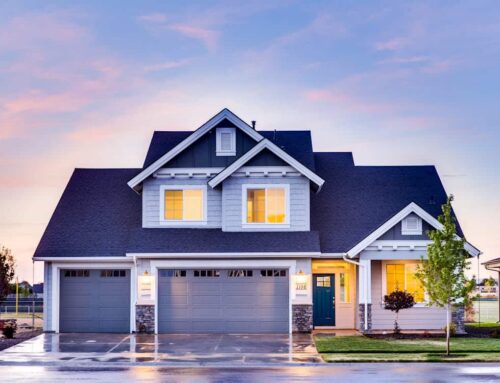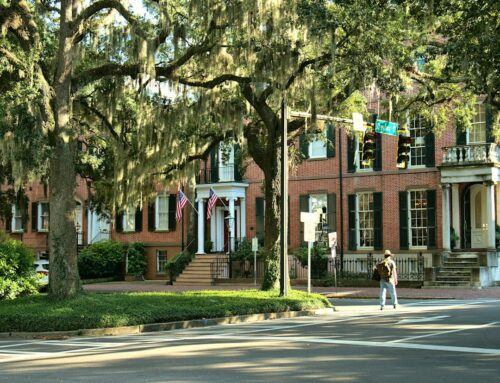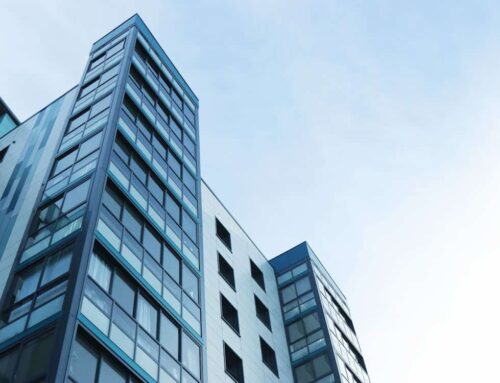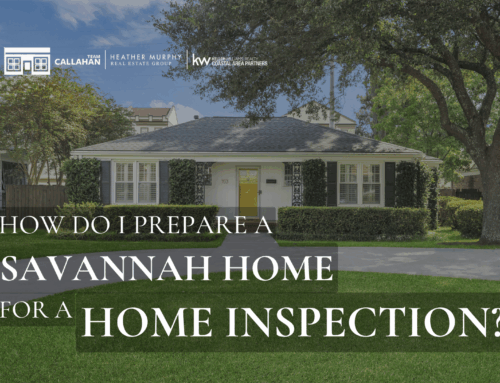Savannah GA Zoning Changes: Housing Development and Affordability Impact
Savannah, Georgia, is a city experiencing significant growth. This expansion brings new residents and an increasing demand for housing across its historic districts and developing outskirts.
As urban landscapes evolve, so too must the regulations that guide their development. The city has recently introduced updated zoning ordinances, a direct response to this rapid urban development and the diverse needs of its growing community.
This article aims to provide a professional analysis of these new zoning laws. We will detail their potential effects on housing development patterns, residential property values, and overall affordability for current and prospective residents in Savannah, GA.
Our team brings a deep understanding of the Savannah real estate market to this discussion. Backed by an extensive local team and a strong track record, we offer on-the-ground insights into these important changes.
Understanding Savannah’s New Zoning Ordinances
The updated zoning laws in Savannah introduce several key modifications to the city’s regulatory framework. These changes aim to modernize the planning process and support sustainable growth.
The city’s articulated goals behind these changes include promoting density in appropriate areas, enhancing neighborhood character through thoughtful design, and streamlining development and permitting processes. These objectives are designed to address housing shortages while preserving Savannah’s unique appeal.
Specific regulatory examples highlight these shifts. Alterations to setbacks and density limits are common, potentially allowing for more units on existing parcels. The introduction of new mixed-use zones in Savannah, GA, encourages vibrant communities where residential, commercial, and retail spaces coexist.
Impact on Housing Development in Savannah GA
Increased Development Potential
The new zoning laws present clear opportunities for increased housing development. Higher-density projects, such as multi-family buildings and townhomes, are now more feasible in designated areas. This shift can help meet the demand for diverse housing types.
There is also a strong emphasis on infill development. This means utilizing vacant lots or underutilized properties within existing urban areas rather than expanding outward. This approach supports efficient use of infrastructure and promotes walkable neighborhoods.
Adaptive reuse of historic or commercial structures is another significant avenue for growth. The updated ordinances may facilitate converting older buildings into residential units, preserving architectural heritage while adding to the housing supply.
Challenges for Developers
Despite new opportunities, developers face challenges. Navigating compliance with revised regulations and permitting processes requires careful planning and expertise. The learning curve for these new rules can impact project timelines.
New developments also place demands on existing infrastructure. This includes roads, utilities, and public services, which may require upgrades to support increased population density.
Financial considerations are also important. Meeting new requirements, such as those related to green building standards or affordable housing contributions, can affect project costs and feasibility.
Geographic Focus of Changes
Specific areas and corridors in Savannah, GA, are most affected by these zoning updates. These often include areas identified for revitalization or those with existing infrastructure capable of supporting higher density.
This focus indicates the potential for new growth centers and redevelopment zones. These areas could see significant transformation, attracting both residents and businesses.
Effects on Savannah Real Estate Affordability and Property Values
Affordability Dynamics
One primary goal of these zoning changes is to address Savannah real estate affordability. An increase in housing supply, particularly for multi-family units and townhomes, could help stabilize or even temper rising price trends in Savannah, GA.
The impact on the availability and pricing of entry-level housing options is a key consideration. By allowing more diverse and smaller housing types, the market might see more attainable options for first-time buyers or those with moderate incomes. An analysis of how increased housing supply could influence price trends, providing Savannah housing market insights, will be crucial.
Some new zoning incentives or requirements may also directly relate to affordable housing. These could include mandates for a percentage of units to be affordable or density bonuses for developers who include such housing.
Property Value Shifts
Property values may experience shifts, particularly within newly designated higher-density zones or desirable development areas. Properties that gain new development potential under these ordinances could see appreciation in value.

Existing homeowners must consider the impact on neighborhood character. Changes in property use around their homes, such as the conversion of single-family lots to multi-family, could affect their property’s perceived value or lifestyle.
The market response to heightened development activity and investment in Savannah real estate will be ongoing. An influx of new construction often draws attention and investment, which can influence overall property values.
Investment Considerations
For real estate investors, these zoning changes open new opportunities. Specific zoned areas may become more attractive for development, particularly those allowing for increased density or mixed-use projects.
Understanding these regulations is key to making informed investment decisions. The long-term outlook for the Savannah, GA, real estate investment market will be shaped by how effectively these new laws foster growth while managing demand.

Implications for Current and Prospective Residents (Homes for Sale Savannah GA)
For Buyers
Prospective buyers will likely find expanded housing choices. These could include a wider variety of property types and locations, ranging from apartments and townhouses to single-family homes in evolving neighborhoods. This is an important consideration for anyone moving to Savannah.
It becomes even more important for buyers to understand zoning regulations when evaluating properties for sale in Savannah, GA. Future development potential around a property can impact its long-term value and the character of the neighborhood.
Buyers should also consider how future neighborhood development could impact their living experience. Increased density may mean more amenities but also potentially more traffic or changes to neighborhood aesthetics.
For Sellers
Current homeowners looking to sell may find increased property appeal based on development or usage potential under the new zoning. A property that can now accommodate more units or a different use might attract a broader range of buyers, including developers.
Sellers need strategies for marketing properties in this revised regulatory landscape. Highlighting a property’s zoning classification and potential uses can be a significant advantage in some cases. Owners should also consider how these changes affect home worth in Savannah Richmond Hill.
Community Impact
These changes will inevitably lead to shifts in neighborhood aesthetics and density. While some areas may become more vibrant and urban, others might experience changes to their traditional residential character.
The discussion also extends to potential demands on local infrastructure. Increased density means more people utilizing traffic arteries, schools, and other public services, necessitating ongoing planning and investment.
Conclusion
Savannah’s new zoning laws are a significant development in the city’s ongoing growth story. They hold the potential to reshape housing development, influence property values, and impact affordability across the region.
The Savannah, GA, housing market is dynamic and constantly evolving. Staying informed about these regulatory changes and their real-world effects remains important for all stakeholders. The ongoing market evolution will be shaped by these decisions, reflecting current real estate market in Savannah.
Navigating the complexities of Savannah’s changing real estate landscape requires expert guidance. We advise readers to consult experienced and knowledgeable local real estate professionals. Our extensive team and market dominance in Savannah, GA, equip us to provide clear insights and support through these transitions.
Frequently Asked Questions
What are the main changes introduced by Savannah’s new zoning laws?
Savannah’s new zoning laws aim to address rapid urban growth and housing demand. Key changes include modifications to density limits, setbacks, and the introduction of new mixed-use zones. These updates are intended to promote higher-density projects, support infill development, and streamline permitting processes.
How will the new zoning ordinances affect housing development in Savannah, GA?
The new zoning laws are expected to impact housing development by increasing opportunities for higher-density projects like multi-family homes and townhouses. They also encourage infill development within existing urban areas and adaptive reuse of commercial structures. Developers, however, may face challenges in navigating revised regulations and potential infrastructure demands.
What is the potential impact of these zoning changes on real estate affordability in Savannah?
The impact on affordability is complex. While increased housing supply could help stabilize prices, the costs of new construction and infrastructure upgrades might influence market dynamics. Specific zoning incentives for affordable housing could play a role in making entry-level homes more accessible, but overall effects will depend on market response and implementation.
How might the new zoning laws affect property values for existing homeowners and investors in Savannah real estate?
Property values may shift, particularly in newly designated higher-density or redevelopment zones, where appreciation could occur due to increased development potential. Existing homeowners should be aware of potential changes to neighborhood character and property use, which can influence their property’s long-term value.
What do these new zoning laws mean for buyers and sellers of homes in Savannah, GA?
For buyers, these laws could mean expanded housing choices and diverse property types. It is crucial to understand zoning when evaluating homes for sale in Savannah, GA, as it can affect future neighborhood development. Sellers might find increased property appeal in areas with new development potential, necessitating specific marketing strategies to highlight these advantages.









